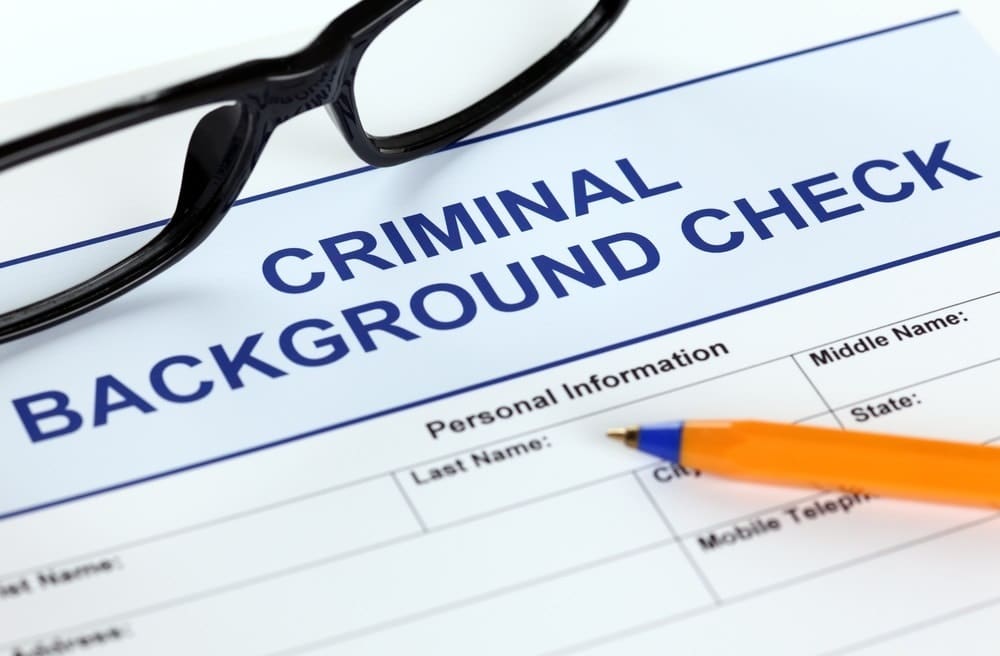Fair Credit Reporting Act (FCRA) claims related to background checks have seen an uptick since last year. “Ban the box” and “fair chance” laws have changed how and when employers conduct background checks, and employers should be aware of these changes to ensure they don’t end up in the midst of a lawsuit.
Companies across the U.S. are increasingly faced with class actions for alleged violations of one of the “big three” — the Telephone Consumer Protection Act (TCPA), Fair Debt Collection Practices Act (FDCPA) or the Fair Credit Reporting Act (FCRA). Although thousands of these claims are filed each year, the only category that has seen an uptick since last year is FCRA claims related to background checks. It is important for employers to understand the current trends with background checks and employee screening, as well as best practices for employers to adopt to prevent liability.
Background Checks
Background checks have become a necessary process for employers wanting to thoroughly vet job applicants. Generally, companies perform background checks on employees as part of the employment application or new hire process. However, state and local “ban the box” laws are becoming more and more popular; these usually place some restrictions on when a background check can take place: typically not until after a conditional offer of employment has been extended to the applicant.
As mentioned previously, FCRA class actions brought by employees or job applicants are on the rise. Recently, the popular ride-sharing company Lyft was successful in convincing a federal judge to dismiss an FCRA class action and order the plaintiff to submit his claims to arbitration. The Lyft driver who brought the suit accepted Lyft’s terms of service when he signed up to be a Lyft driver. The terms of service included a mandatory arbitration agreement which was used by Lyft to compel the matter to arbitration.
Some employers wait until a candidate has been thoroughly vetted and is selected for hiring before having the candidate sign an arbitration agreement. Oftentimes, it is signed as part of the new hire paperwork. Employers are cautioned from doing this. To avoid FCRA class actions, employers should consider having all applicants sign an arbitration agreement, at least before or at the same time the background disclosure/authorization forms are given to the applicant. Having an arbitration agreement with a class-action waiver will go a long way in defending against a FCRA class-action lawsuit.
Most background check class actions are filed because of alleged defective disclosure/authorization forms. Don’t rely on a form just because it was provided by your background check vendor. The employer — not the vendor — is usually the one that is liable for defective forms. Check with your vendor and hiring managers to make sure the most up-to-date forms are being used, and have your forms reviewed by legal counsel.
“Ban the Box” and Fair Chance Laws
Nationwide, 31 states and over 150 cities and counties have adopted some form of “ban the box” legislation. This translates to approximately three-fourths of the U.S. population living in a jurisdiction with some form of “ban the box” law or ordinance.
Although the legislation varies, typically it requires employers to remove the criminal history check box from employment applications. This does not necessarily prevent employers from asking about criminal history, but it does limit when an employer can ask. Proponents believe that “banning the box” helps balance the inequities faced by those with a criminal history who are attempting to re-enter the workforce.
Piggybacking on the “ban the box” movement, legislatures at the state and local level have passed a number of “fair chance” or “second chance” laws and ordinances, which is intended to give applicants with a criminal history a fair chance in the hiring process.
Typically, this includes one or more of the following:
- Employers are prohibited from asking job applicants about their criminal histories until after a conditional offer of employment has been made;
- An employer must conduct an individualized assessment and consider a number of factors when deciding whether to hire an applicant with a criminal history;
- Certain notices must be given to the applicant if the employer is considering not hiring someone because of their criminal history; and
- Before making a final decision, the employer must give the applicant time to respond to the information provided by the employer.
Although the number of states and localities that have implemented fair chance laws for the public sector is fairly low (three states and 15 localities), many believe this number will increase significantly over the next few years.
The law on background checks and employee screening is changing fairly regularly. Employers should monitor each state and locality where they have employees and start preparing for changes as soon as they become aware of new laws or ordinances.



 Spencer W. Waldron is a partner with employment law firm Fisher Phillips in Irvine, California. Spencer has experience representing employers with wage and hour litigation, employee compensation plans, laws regulating drug testing and background checks and harassment/discrimination claims. He may be reached at
Spencer W. Waldron is a partner with employment law firm Fisher Phillips in Irvine, California. Spencer has experience representing employers with wage and hour litigation, employee compensation plans, laws regulating drug testing and background checks and harassment/discrimination claims. He may be reached at 









